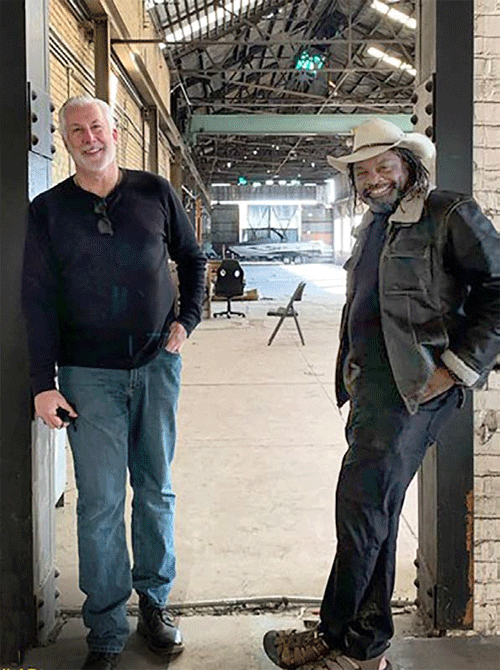With the opening of their 20,000-square-foot manufacturing facility in the railway district in Provo, entrepreneurs Blake Christian and Roi Maufas are taking aim at housing affordability. Their new venture, MIT Modular (Modal Innovations Technologies), has a strategy of taking single-use shipping containers and developing them into sustainable housing models.
“Affordable housing is a bipartisan issue and something we can all agree needs to be addressed,” Maufas said.{mprestriction ids="1,3"} “We are getting right to work finding exciting solutions to create and preserve high-quality, sustainable and affordable housing that can be delivered anywhere in the U.S.”
Christian and Maufas have over 20 years of combined experience in the modular housing industry.
“The need for quality affordable housing has never been greater,” said Christian. “I’m proud to lend my financial and Opportunity Zone expertise and have an active role in identifying practical solutions to the housing crisis.”
Co-founder Maufas also serves as MIT Modular’s chief designer.
“I know firsthand how it feels to be without a home,” Maufas said. “I lost everything and was homeless after Hurricane Katrina.” Restoring hope and dignity with homeownership is his unwavering dedication, which is clearly driven by his own experiences.
MIT Modular offers a wide variety of housing solutions ranging from single-unit “Accessory Dwelling” units to multi-family, stackable designs. MIT also can incorporate basements and rooftop decks to maximize living space in a cost-effective manner.
MIT Modular has built a coalition of community leaders, nonprofit organizations and municipalities that share similar goals to assist in tackling housing affordability throughout the U.S., Maufus said. “Combining the sustainable, flexible and cost-effective modular housing designs with the community renovation focus of the federal Opportunity Zone Program, makes MIT Modular a national model for helping solve the housing shortage while creating well-paying jobs and improving underserved communities,” he said.
Christian, who has over 40 years of tax accounting expertise and is a nationally recognized Opportunity Zone expert, is optimistic about the future.
“Despite the national economic challenges, MIT is well-positioned to supply creative and functional housing to a variety of consumers, including low-income, homeless, workforce, vacation, AirBnB landlords, retail and special-purpose users,” said Christian. “The tax deferral, depreciation and ultimate tax-free gains available to our investors provides a compelling option in today's investment markets.”
MIT Modular held a public opening of their Provo facility last week.{/mprestriction}








